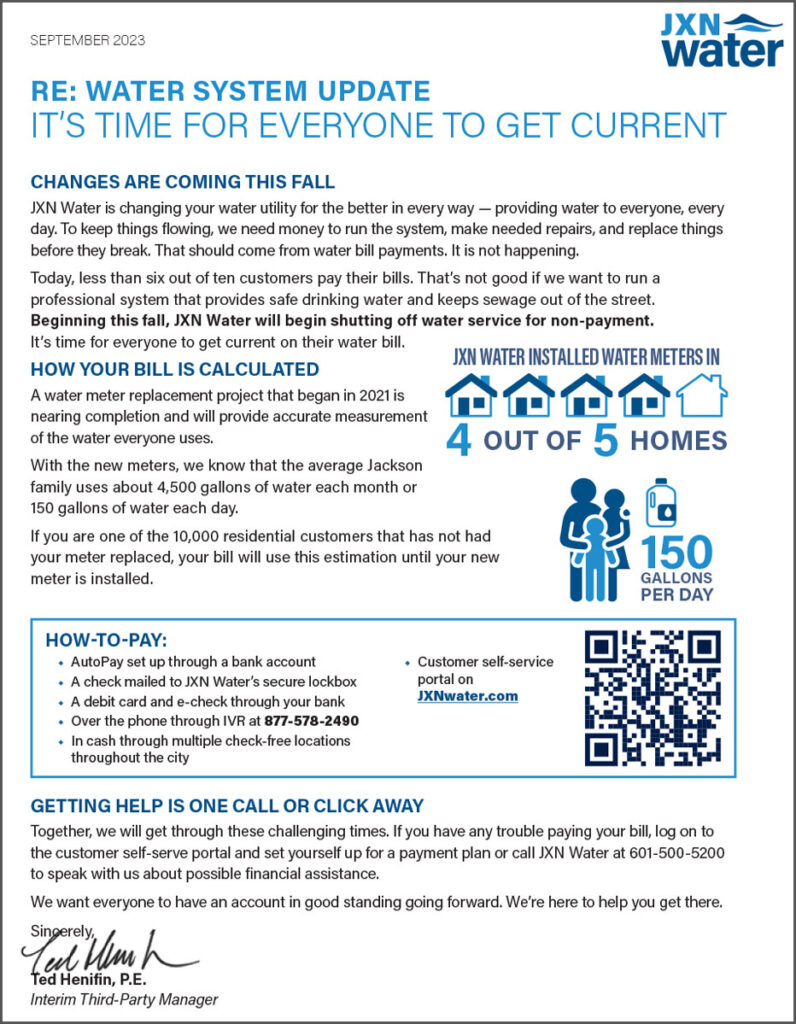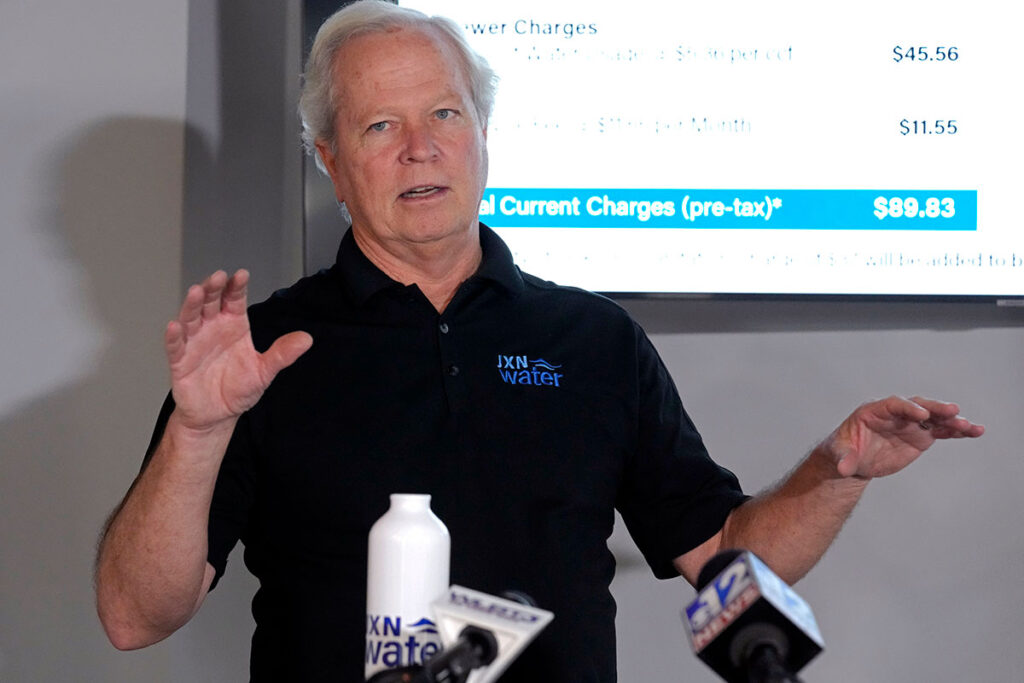Water could soon become more affordable for Jackson residents who receive SNAP food assistance, under a new proposal JXN Water Interim Third-Party Manager Ted Henifin unveiled on Nov. 17.
A new tiered billing system and water-availability fee would prioritize increasing revenue for Jackson’s water and sewer utilities while also helping some residents better afford groceries, Henifin said, noting that it would be a first-of-its-kind standard if implemented.
“We think this is a great opportunity to really change the dialogue around water and sewer in the city of Jackson,” Henifin said.
While he said he has the authority to begin implementing the new rates in January 2024, the third-party manager expressed a desire to involve the mayor, city council and Jackson residents in a conversation about the proposal, and he wants the plan included on the agenda for a vote at the next Jackson City Council meeting on Dec. 5.
The new rates would be based on customer meter sizes. Those with the smallest meters would see their bills increase by about 30 cents per day (an increase of about $10 a month) while those with “larger meters ranging from one-inch to six-inch in size (i.e., commercial, multi-family, and industrial), will see a daily increase from 71 cents (one-inch meters) to as much as $89 (six-inch meters) on average,” Henifin proposed.
The new proposal would decrease bills by 69 cents a day on average for customers who also receive SNAP benefits. Henifin said he was inspired to decrease the billing for SNAP recipients after seeing a 2016 U.S. Department of Agriculture study that found SNAP recipients nationally spend 1.2% (totaling over $1 billion dollars) of their benefits on purchasing bottled water every year.
“This new rate structure makes water affordability possible for 12,500 JXN Water customers who receive SNAP benefits,” he said in a press release.

Henifin’s proposal culminates a nearly year-long process of sorting through issues with inflated water bills and unpaid water usage. He said that while only about 56% of billed customers pay their water bills, he’d like to scale up to 90-to-95% payment-collection, the utility-industry standard. He believes these proposed rate increases will allow JXN Water to be self-sustainable once the federal funds Congress allocated to overhaul water the system runs out and would increase revenue for the sewer system. The federal funds cannot be used for sewer.
Earlier this year, Henifin proposed basing water bills on assessed property values. Gov. Tate Reeves nullified that proposal when he signed House Bill 698 into law, mandating that “the calculation of an inhabitant’s bill shall be limited to the actual amount of usage.”
The U.S. Department of Justice gave Henifin control over Jackson’s crumbling water infrastructure in December 2022 after local and state leaders engaged in a back-and-forth over responsibility to fix long-standing water failures. He took over Jackson’s sewer infrastructure earlier this year.
In September, JXN Water sent out notifications warning they would begin to shut off access to water for customers with unpaid bills.
“We have to collect and if the bill’s not affordable, we get back into the same spiral we were in before where people just can’t pay their bill, we shut them off, they work around it. It creates a real stress on the community,” Henifin said on Nov. 17.
He said this proposed new system also helps justify shutting off water access to customers who do not pay their bills. “Having a bill that’s affordable makes it easier for us to actually shut people off to collect it because we know that they can afford to pay it,” Henifin said.










